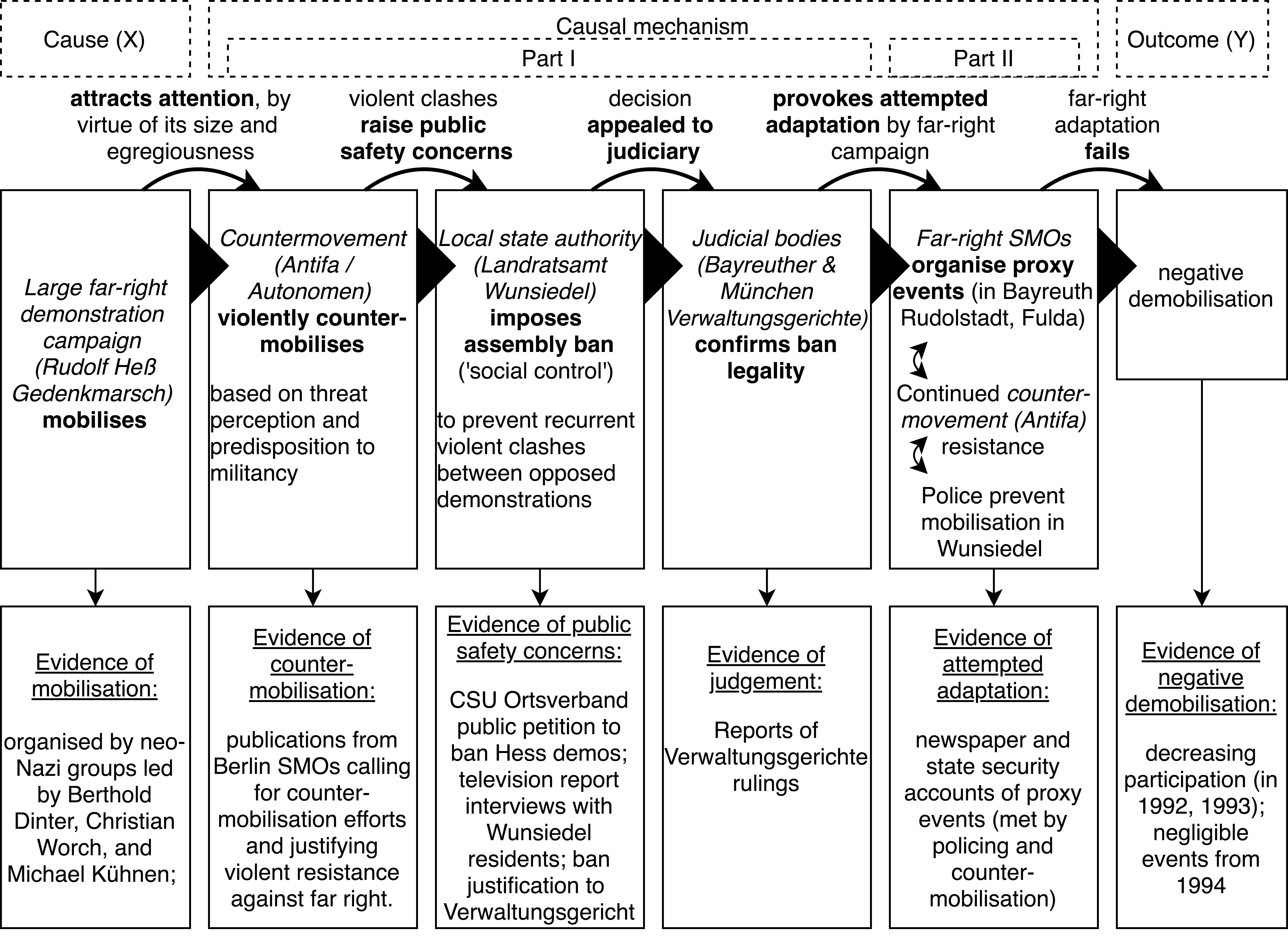Important links
Abstract
Scholarship on social movement lifecycles has focused on mobilization processes, with relatively less attention on the ends, demobilization. The intuitive connection between origins and ends has sometimes led to a conceptualization of demobilization as simply the failure to continue mobilizing, obscuring the distinct causal processes underlying demobilization. This article adds to recent studies foregrounding demobilization by studying the negative demobilization of large, far-right, demonstration campaigns. Using a subset from this population of cases—campaigns in Germany, England, and Austria between 1990 and 2015—the article applies qualitative comparative analysis (QCA) to this causally complex phenomenon. I find that demobilizing is conjunctural, with evidence of four patterns: closing opportunity, coercive state repression, civil countermobilization, and militant anti-far-right action. This article addresses an important—and conspicuously ubiquitous—population of cases, far-right demonstration campaigns and presents findings that reflect on critical issues in the study of far-right sociopolitics.
Important figures


Citation
@article{zeller2022demobilising,
title={Demobilising far-right demonstration campaigns: Coercive counter-mobilisation, state social control, and the demobilisation of the Hess Gedenkmarsch campaign},
author={Zeller, Michael C},
journal={Social Movement Studies},
volume={21},
number={3},
pages={372--390},
year={2022},
publisher={Taylor \& Francis}
}